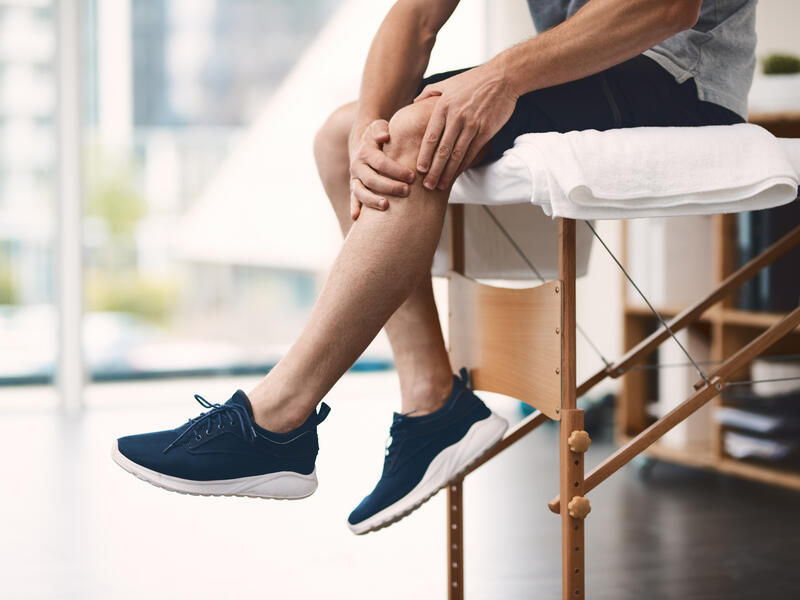Sanford Health is continuing to explore the potential of orthobiologics and regenerative medicine with a study that may advance treatment for those living with osteoarthritis.
This trial known as ENDURE, which is run in full compliance with the FDA, will examine the safety and effectiveness of adult, adipose (fat)-derived stem cells.
“I’m really excited to get the trial started,” said Donella Herman, M.D., a specialist in sports medicine at Sanford Health. “I’m even more excited about a year from now because I feel like we’re just going to learn so much about how effective this treatment is and what it is effective for.”
Learn more: Orthopedics regenerative medicine at Sanford Health
Essentially, orthobiologics and regenerative medicine tap into the body’s natural healing ability.
What this clinical trial will study
Orthobiologics, a part of regenerative medicine, refers to the use of biological substances found in the body to help treat muscle and bone issues.
This may include injuries to muscles, tendons, and ligaments and — as the focus of this trial — more chronic conditions such as osteoarthritis.
When used properly by qualified providers, cell therapies are proving to be effective treatment options.
“Our goals are to collect data for the different branches of orthobiologics,” Dr. Herman said. “Do people with knee osteoarthritis respond better with PRP (platelet rich plasma) or bone-marrow derived cells or fat-derived stem cells? Which works best? Which works for the longest time? That’s the kind of information we’re looking for. It’s that kind of ratio that we just don’t have right now.”
One of the obstacles in regenerative medicine at this point, Dr. Herman said, is that it’s often being marketed by people with dubious clinical qualifications. They use underdeveloped research and make unfounded claims.
“It’s become a little bit of a wild, wild west with stem cells and PRP,” Dr. Herman said. “There are pop-up shops all over the place. It’s one thing to have access to these things and allow access to people, but if you’re not doing that in a responsible way and using that opportunity to build on a knowledge base, it’s kind of smoke and mirrors.”
In sharp contrast to that scenario, this trial aims to add to the bank of knowledge in regenerative medicine.
“We know we can tell people what we’re putting in their knee or their hip or their shoulder because we’re testing,” Dr. Herman said. “A lot of other places they’re just injecting it. They don’t know if the stem cells are viable or not.”
Who qualifies for ENDURE clinical trial
A typical candidate for the study, as described by Dr. Herman, might have osteoarthritis in their wrist and would not want to sacrifice a loss of motion that could come with surgery. They also would likely have exhausted the steroid injections treatment options that offer temporary relief.
“We think of regenerative medicine as a possible alternative therapy that may help people put off surgery,” Dr. Herman said. “I don’t ever tell people it means you will never need surgery but what it does is hopefully buy a little time until you’re ready for that. There are lots of times where we’ll do steroid injections until those fail and then they have to get a new joint. We’re hoping for this to give us a bridge.”
Once a patient is approved to be part of the ENDURE study, the procedure includes:
- Removing a small amount of fat from the body
- Separating regenerative cells from fat cells before a washing process
- A small-volume of regenerative cells are injected in the affected joint
Follow-ups are then completed in person and over the phone.
Qualified candidates must be 18 or older and:
- Complete testing to confirm an osteoarthritis diagnosis and be identified as best-suited for the ENDURE study among open clinical trials
- Be in good health and pass a physical exam
- Must have a clinical diagnosis of osteoarthritis in one of the five areas: wrist, hip, knee, ankle, or shoulder
The cost associated with the study is not currently covered by insurance. By enrolling in the ENDURE study, however, participants may be playing a role in advancing regenerative cell research that could have the potential to improve care for future generations.
Those interested in hearing more about possible eligibility in the study can call (605) 328-3700.
Read more
- What is regenerative medicine?
- NFL Alumni, Sanford Health team up on lifelong player health
- Sanford Health pioneers use of body’s own stem cells
…
Posted In Innovations, Orthopedics, Research, Specialty Care, Sports Medicine
